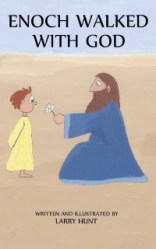Isaiah 51
Chapter Fifty-one:
Vs. 1-2: The rock from which Israel was hewn and the quarry from which it was dug are Abraham and Sarah. God calls attention to them to illustrate his power to bless: Just as God had the power to bless Abraham so that the whole nation of Israel came from that single man, so God still has the power to strengthen Israel and lead it out of the Babylonian Captivity.
Identifying the speaker in this chapter is a little difficult because the grammatical person shifts so fluidly. For instance, the speaker in verses one and two is God. There he speaks in the first person: “Listen to me…I blessed him and made him many.” However, in the very same verses, he also refers to himself in the third person: “…you that seek the LORD.” I can think of two explanations. Either the speaker is the Messiah and he is distinguishing between himself (as God) and the Father (as God) by these shifts in grammatical person, or the speaker is the Father and he refers to himself stylistically in the third person sometimes, as Christ occasionally does in the Gospels. The same thing happens in v. 15.
v. 3: There are other references to Eden, or rather the return of Eden, in Isaiah. 11:6-9 and 2:2-4 come to mind; see notes there.
v. 6: Just as in vs. 1-2, God references his blessing of Abraham to reassure his people that he can and will bless them, so here he references the creation, which he made and which seems so permanent. The Israelites (as well as all the rest of us) think of the creation as something stable, but God assures them that his promise to save them is even more stable, since creation will eventually pass away.
Vs. 9-10: Here is another instance where the speaker is hard to identify. The arm of the LORD is being addressed, but by whom? The Messiah? Isaiah? Israel?
The theme of calling something or someone to wake up is repeated in v. 17, and in 52:1.
v. 16: Barnes believes that “your mouth” here refers to the Israelites’ collective mouth. God has taught his people wisdom. One could argue, I suppose, that it might be Isaiah’s mouth or the Messiah’s mouth, but I see no reason to reject Barnes’s idea, especially since God addresses Zion at the end of the verse, saying “you are my people.”



Isaiah 48-51 « Larry Hunt's Bible Commentary said
[…] have updated my Bible commentary notes to include chapters 48, 49, 50, and 51 of Isaiah. As always, feel free to leave comments! Like this:LikeBe the first to like this […]
Isaiah 48-51 « said
[…] have updated my Bible commentary notes to include chapters 48, 49, 50, and 51 of Isaiah. As always, feel free to leave comments! Like this:LikeBe the first to like this […]